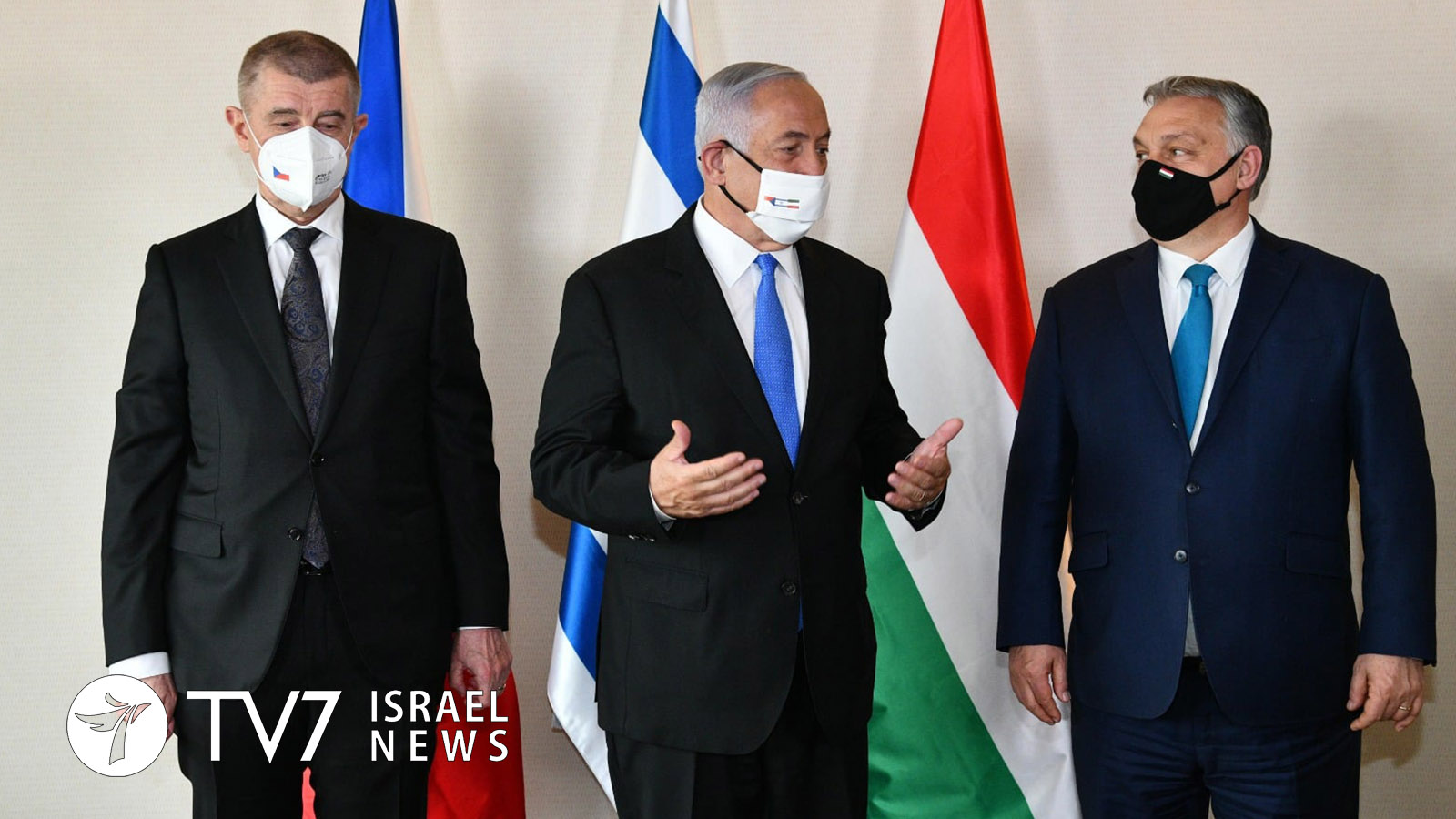Israeli Prime Minister Benjamin Netanyahu hosted a trilateral summit in Jerusalem with Hungarian Prime Minister Viktor Orbán and Czech Prime Minister Andrej Babiš to discuss advancing cooperation in the research, development and production of coronavirus vaccines.
Prime Minister Netanyahu said it was “a delight” to welcome his “two close friends,” specifying that “when I say close friends I mean that, both close personal friends, but also leaders who’ve made their countries even greater friends of Israel than before.”
All three leaders attended the official opening of the Czech diplomatic mission in Jerusalem. Israeli Foreign Minister Gabi Ashkenazi said that the inauguration of the “represents additional proof of the depth and the scope of the friendship that we share with the Czech people and the Czech government.”
Hungary was the first European Union member to open its own mission in the Israeli capital back in March 2019, in contravention of EU prohibitions against relocation from Tel Aviv.
The three heads of state and their representatives then held a working meeting on the fight against the coronavirus in all its aspects including exit strategy, reducing regulation between the countries and Israel’s “Green Pass” program. The summit comes as central Europe battles a third wave of the pandemic.
The countries’ professional teams who participated in the working meeting from the Israeli side included Health Minister Yuli Edelstein, Foreign Minister Gaby Ashkenazi, the head of the Prime Minister’s staff Asher Hayon, Prime Minister’s Office Acting Director General Tzachi Braverman, Health Ministry Director General Prof. Chezy Levy, National Economic Council head Professor Avi Simhon, National Security Council Deputy Head Eitan Ben-David, Israeli Ambassador to Hungary Yaakov Hadas and Israeli Ambassador to the Czech Republic Daniel Meron. The Hungarian officials in attendance were Foreign Minister Peter Szijjarto and the Hungarian Ambassador to Israel Levente Benko. The Director of the Office of the Government of the Czech Republic Tunde Bartha and other officials from Prague also attended.
“We discussed a number of ideas. The first is exchanging green passports as we’ve done with several countries already. It would be an important addition to add Hungary and the Czech Republic to this; but equally to see how we can involve both Czech Republic and Hungary in the international plant that we want to build here in Israel for the production of the vaccines of the future,” said Netanyahu, at a later joint press conference.
Underscoring that “we are better together,” the Israeli leader said, “We appreciate the fact that they’ve opened up missions in Jerusalem and also that they assist us on the international stage as true friends do. In the spirt of that friendship, they came here to Jerusalem to see how we can cooperate on COVID.”
“We’ve discussed several topics, including the green pass. It’s a good idea adding the Czech Republic and Hungary to this,” Netanyahu said, adding that, “we also want to bring them in for the international vaccine plant that we will establish in Israel.”
Netanyahu went on to vow that the Jewish State will do its utmost to help other countries cope with the disease, including the transfer of any surplus vaccines after the Israeli population has been fully inoculated.
Israel has become a world leader in the efficient and rapid pace of its vaccination campaign.
After hailing Israel as a “role model” for its handling of COVID-19, Hungarian Prime Minister Orbán said that his nation is set to present “domestic options for the green passport and are about to join the global initiative.”
Czech Prime Minister Andrej Babiš also commended Israel’s successful inoculation program as inspiring, and said that the summit “proves the Czech Republic has a friend it could rely upon.”
Babiš then underscored Prague’s commitment to Jerusalem, by condemning the recent decision by the International Criminal Court (ICC) to investigate alleged IDF war crimes against the Palestinians. Branding the probe as “intolerable,” he stressed that “The Czech Republic does not recognize Palestine as a state, it is a political ruling.”
Calling on the ICC to end its discriminatory policies against the Jewish State, Babiš said, “The court should stop being selective.”
“We will not forgive for anything that will endanger the State of Israel – which is the only democracy in the region,” emphasized the Czech leader.
